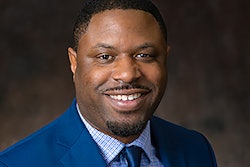It’s been exactly two years since then-Democratic presidential hopeful Barack Obama gave his speech on race at the National Constitution Center in Philadelphia.
After all, who better to facilitate these discussions than a person whose polycultural heritage made him an inspiration to millions of people, particularly those who were grappling with their own identity issues.
Alas, Obama has had other things on his plate in the first year of his presidency, and it doesn’t look like we’ll have the conversation anytime soon. Unfortunately, the political climate in this country has helped to exacerbate racial and socioeconomic divides. We are now dealing with xenophobia and a constant fear of the Other, as exhibited by mediated discourses on terrorism, immigration and health care.
While we might not have the national conversation championed by Bill Clinton and advanced two years ago by Obama, we can have these discussions in the classroom. I believe as educators we have a moral imperative to discuss uncomfortable issues about race, ethnicity, class, gender, sexuality, and other nuances of identity that come naturally in a heterogeneous society.
In my mass communication classes, I’ve shown students clips from a documentary called “Reel Bad Arabs,” which is produced by the Media Education Foundation. Some of my students were shocked that the films they grew up with—including Disney’s “Aladdin”—were replete with derogatory images of Middle Eastern peoples.
These clips were a starting point for discussion because we often view our own histories in a vacuum without seeing shared stories of marginalization. One of my students told me that her friends constantly made insulting comments about Chinese and Mexican people. She said she felt powerless to stop them from making such comments.
I tell my students that you often can’t change people’s minds by openly “calling them out” on making prejudiced comments. It usually has to be done more diplomatically as a way of slowly—but surely—making a person realize the magnitude of his/her comments. I don’t believe that there is a such a thing as innocent ignorance; it needs to be challenged on every level.
I can share a great example. When I taught at Penn State, I had a White student who was a leader in her sorority and had become one of the most visible students in her major. While her outside appearance might have given off the impression that she was from an all-White affluent suburb, she actually grew up in an all-Black neighborhood and was one of a handful of Whites to attend her high school.
She told me that many of her friends did not know this and would make comments about Blacks. She would politely challenge them and bring up her own upbringing, which would usually cause her friends to become speechless.
I told her that she had the potential to help facilitate cross-cultural understanding because many people live in such segregated circumstances (both within and outside their control).
For my part, I hope the discussions I have introduced in class help my students feel more empowered about discussing issues of race with their peers. The consequences of not being more open and honest in these discussions, as Obama noted two years, will continue to perpetuate our misunderstandings of one another.















